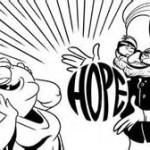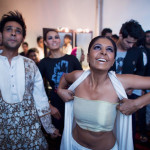Why Bangladesh Propagates against ISI?
By Sajjad Shaukat
Having pro-Indian tilt, since Bangladesh’s Awami League came into power, Prime Minister Sheikh Hasina Wajid has started a deliberate propaganda campaign against Pakistan, its army and especially Inter-Services Intelligence (ISI).
In this context, on the direction of India, unlike the past years, a ceremony was held in Dhaka on March 24, 2013, with full pump and show to honour ‘Foreign Friends of Bangladesh Award,’ in relation to the crisis which led to the separation of East Pakistan in 1971. For this purpose, several foreign friends who included various institutions and media anchors from various countries, particularly India were invited. Besides other renowned persons, the recipients of awards from Pakistan were mainly those personalities whose deceased fathers had opposed army action in the East Pakistan and had totally ignored the Indian supported secessionist movement led by Mukti Bahini. Notably, on the instruction of New Delhi, in December, 2012 when the  names of participants in the said ceremony were announced, Bandladeshi Prime Minister Hasina Wajid had refused to attend D-8 conference in Islamabad unless Pakistan tendered apology for the alleged genocide of Bengalis.
names of participants in the said ceremony were announced, Bandladeshi Prime Minister Hasina Wajid had refused to attend D-8 conference in Islamabad unless Pakistan tendered apology for the alleged genocide of Bengalis.
In this regard, in the recent past, a book titled, “Sheikh Mujibur Rahman: The Unfinished Memoirs” written by a Bengali as his autobiography has been simultaneously released in Bangladesh, Pakistan and India. The book left no stone unturned in distorting Pakistan’s history and tarnishing the image of Pakistan’s armed forces regarding the separation of East Pakistan.
Without grasping reality, the book explained that it was not Sheikh Mujibur Rahman and Bengalis who wanted to break up Pakistan, but actually created Pakistan. In fact, the political intrigues and blunders of military dictators broke up Pakistan—Majib was arrested and a military operation started in East Pakistan. Bengalis were massacred and their women were raped.
While speaking in line of the book, and concealing the real facts, senior media anchor, Hamid Mir who also received the award, reproduced its contents in his article, “Mujib’s Memoirs,” published in a leading daily, on November 24 praised Mujibur Ranman and implicated Pak Army. He wrote, “It is time now to apologise officially to the people of Bangladesh.”
Notably, a renowned Bengali journalist Sarmila Bose authored a book, “Dead Reckoning: Memories of the 1971 Bangladesh War” after thorough investigation. Her book was published in 2011. While countering exaggerations of the Indian and Bengali Journalists, Bose argues that the number of Bengalis killed in 1971 was not three million, but around 50,000 while Bengalis were equally involved in the bloodshed of Punjabis, Biharis, Pashtoons and Balochis.
Everyone knows that Majib was already in connivance with India for separation of East Pakistan. Therefore, when East Pakistan was occupied by Indian Army in 1971, he stated with pleasure that his 24 years old dream of an independent Bangladesh had been fulfilled. He had earlier developed his contacts with Indian rulers and training camps of Mukti Bahini, established by Indian army and RAW which also funded Mujibur Rehman’s general elections in 1970.
Now, India is employing various tactics through Prime Minister Hasina Wajid who has become a tool in accelerating propaganda against ISI. Just like the Indian leaders of the ruling party, Congress and the fundamentalist parties, especially BJP, who have made ISI, a scapegoat for the forthcoming elections of India, Prime Minister Ms. Wajid including workers of the Awami League has been following the same pattern by propagating against this spy agency.
As a matter of fact, the government led by Awami League has brought about political instability, social strife and financial problems of grave nature in Bangladesh. Owing to incompetence, flawed policies, its leader Prime Minister Hasina Wajid has totally failed in resolving the problems of the impoverished masses. Therefore, present scenario in Bangladesh presents poor governance, while the government is generally known as an Indian puppet.
Nevertheless, resultantly political turmoil and social disorder with its negative impact go on haunting the socio-political milieu of Bangladesh. Lack of political vision and inefficiency of the government headed by PM Ms. Wajid and the ministers have turned the Awami League into a corrupt clique of politicians who are totally insensitive towards real issues faced by people of the country, as they remain focused in promoting their self-interests. Hence, party’s popularity considerably declined. As the country enters into new phase of elections, its leaders have developed irrational fears and sense of proportion speculating that they will be rejected by the voters. In this context, political experts indicate that Bangladeshis have lost hope in Awami League—bringing about any positive change in their poverty ridden socio-economic standing and status of deprivation. The political awareness of the fiercely independent and patriotic Bangladeshis has caused them to lose faith and respect for Awami League which has made their country the subservient of New Delhi and collaborator of Hindu extremists.
So, in this deteriorating situation, Awami League’s leadership has developed a psychological obsession with preconceived ideas to appease Indian government and extremist Hindus by propagating against Pakistan and particularly ISI.
It is mentionable that, in the election-campaign, Awami League’s rival party, Bangladesh Nationalist Party (BNP) led by Begum Khaleda Zia is likely to challenge the current problems, created by Awami League. Fearing the impending loss in the polls and feeling the pinch of the likelihood of losing to BNP, the Awami League has launched a vile propaganda campaign to malign BNP by linking it with ISI. In this venomous campaign, Awami League is being guided by its Indian advisers.
It is notable that Tarique Rehman who is son of the BNP Chairperson Ms. Khaleda Zia is likely to take over the leadership of BNP from his mother and is a strong contestant to win elections in the country. In this respect, the content analysis of recently published propaganda reports in Bangladesh’s print media revealed that Tarique Rehman has contact with ISI for getting financial support. But some Bangladeshi sources disclosed that Bangladesh’s intelligence agency provided false data about Tarique Rehman to India for initiating a slanderous campaign against him in Indian media—quickly linking him with ISI for maintaining contact and allegedly getting financial support. However, the government of Hasina Wajid’s move is aimed at appeasing Indian leaders and diverting the attention of the Bangladeshi people from the real crises in order to win the elections.
Overtly, Indian rulers declare that they will not interfere in Bangladesh’s forthcoming elections, covertly; they have been using all means in meddling in the politics of that country. Alarmed with power-loss in Bangladesh, Indian top officials have started maligning BNP and ISI, and the same is being done by those of the Awami League.
Unfortunately, nervous and confused leaders of the Awami Legue use Indian style propaganda to implicate BNP and damage its repute with a view to win elections. They intentionally indulge in targeting ISI so as to create hatred against Pakistan and its primary security agency, ISI.
Although the people of Bandladesh are facing poverty due to the flawed polices of the PM Hasina Wajid, yet politically, they are matured to understand the manipulation by her party’s politicians who are playing in the hands of New Delhi.
Nonetheless, Pakistan’s media must assert upon Bangladesh’s writers and analysts to maintain their sense of proportion and stop propagating against Islamabad and ISI, especially when fresh elections in that country are likely to be held in the near future. Pakistan respects the sovereignty of Bangladesh by expecting the same from it. While exposing the Awami League’s connections with India, our media and politicians must condemn slanderous expressions against Pakistan’s ISI.
Returning to our main discussion, Prime Minister Sheikh Hasina lacks political vision and competence to address the real concerns of the poor masses of Bangladesh, as her only priority is to soothe Indians by showing Pakistan in bad light. The inefficiency and corrupt practices of her party’s leaders are known to everybody both inland and abroad. Consequently, they have hardly any chance to be re-elected and hence, have started propagating against ISI.
Sajjad Shaukat writes on international affairs and is author of the book: US vs Islamic Militants, Invisible Balance of Power: Dangerous Shift in International Relations
Email: [email protected]










